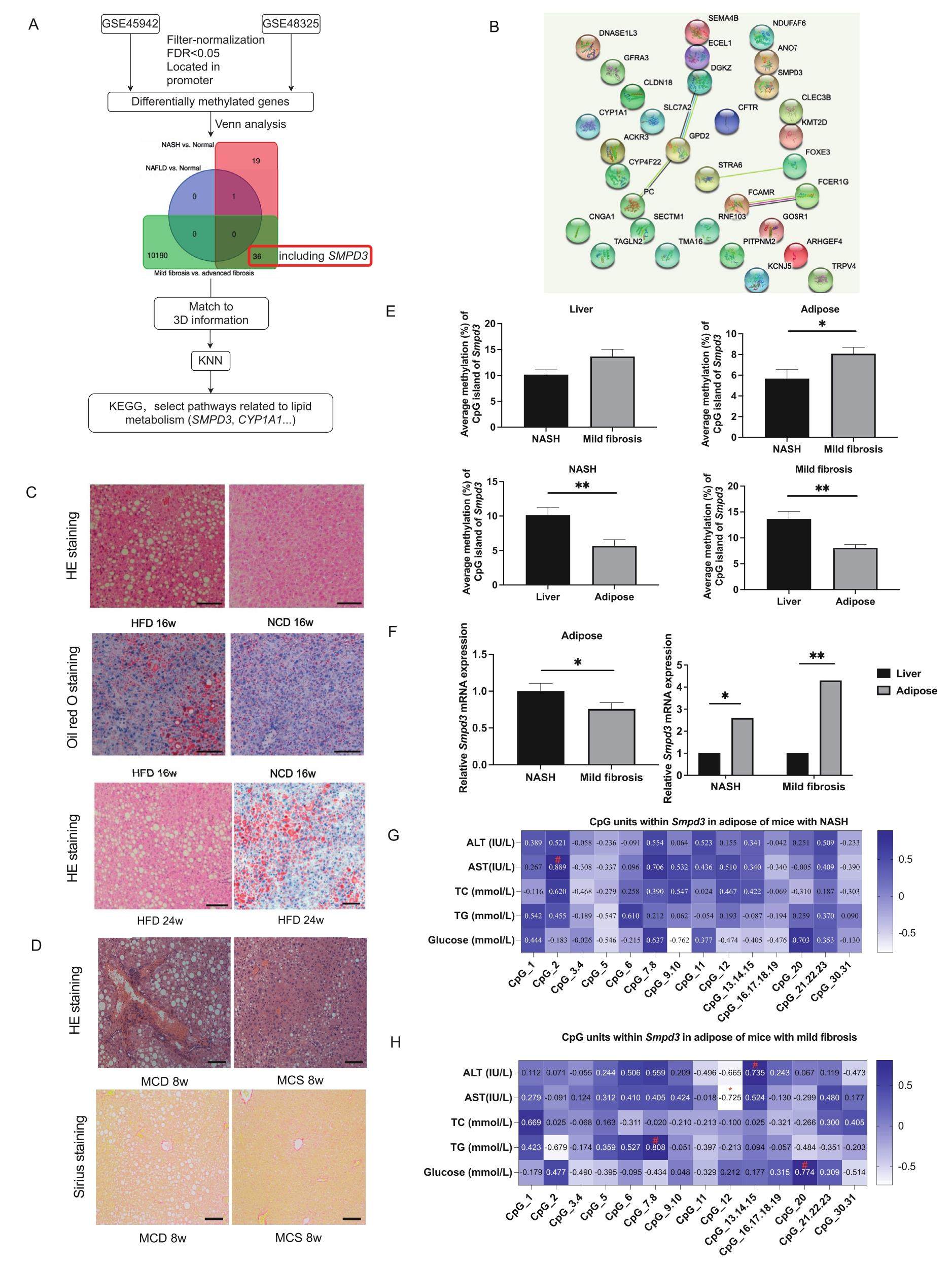
DNA methylation of SMPD3-based diagnostic biomarkers of NASH and mild fibrosis


Non-alcoholic fatty liver disease (NAFLD) is a liver condition that is widely prevalent across the world. A considerable number of people with NAFLD have the potential to progress to a more severe form of the condition known as nonalcoholic steatohepatitis (NASH), accompanied by bridging fibrosis. This advancement is more likely if the patient has metabolic risk factors such as obesity or type 2 diabetes that deteriorate over time. Additionally, even slight inflammation or fibrosis in NAFLD can significantly increase the likelihood of progression compared to steatosis alone. This underscores the importance of revising the present methods of monitoring NAFLD patients to ensure early detection and effective management of the disease. The pattern of DNA methylation varies with the onset of a wide range of NAFLD since it is extremely susceptible to internal and external environmental stressors; hepatic DNA methyltransferase has been connected to the NAFLD activity score (NAS) and has been demonstrated to have higher activity in NASH than simple steatosis. Thus, the current work aimed to clarify the role of DNA methylated genes, i.e., sphingomyelin phosphodiesterase 3, Smpd3 in liver tissue and adipose tissue of NASH and mild fibrosis, for identifying biomarkers for differentiating different stages of NAFLD and providing precision medicine approaches to NAFLD diagnosis and management.
